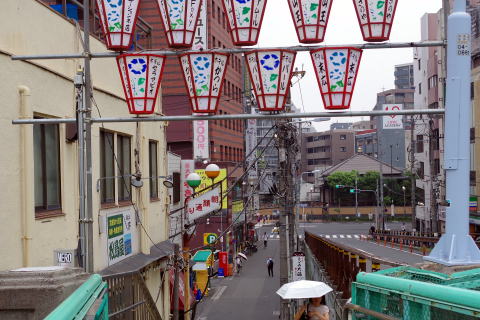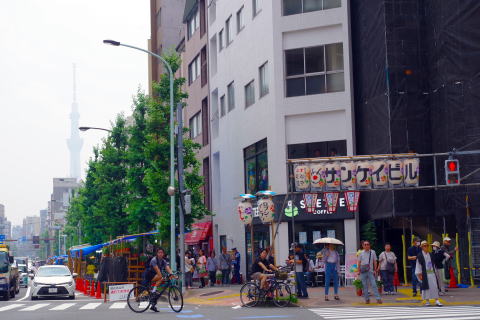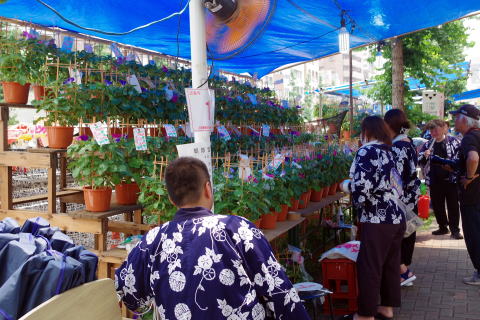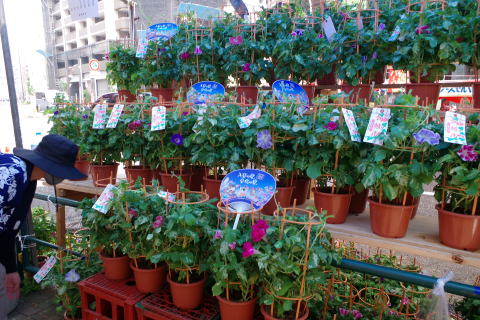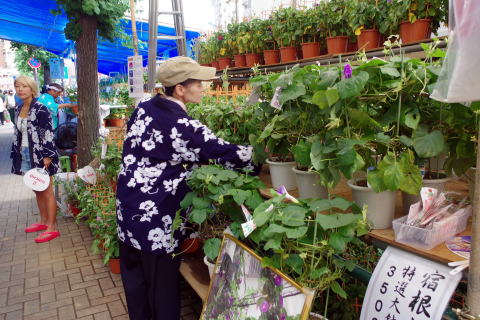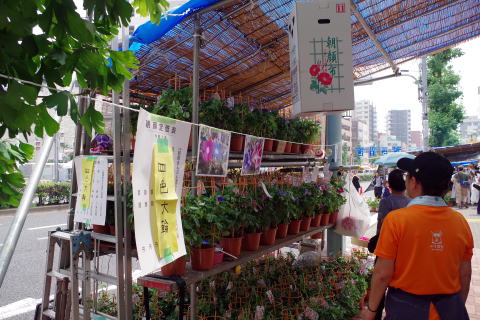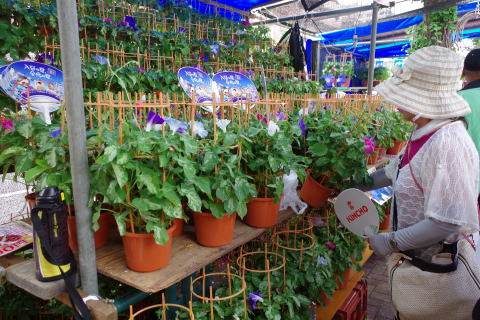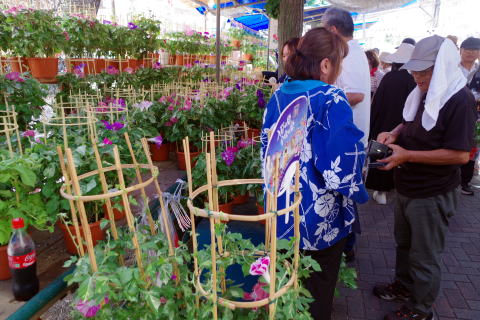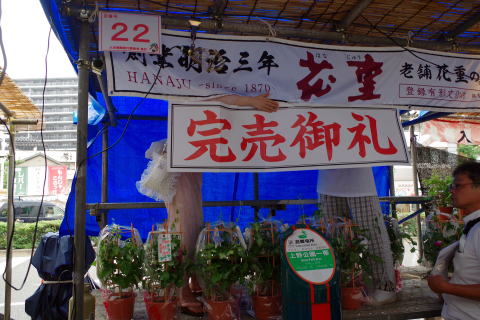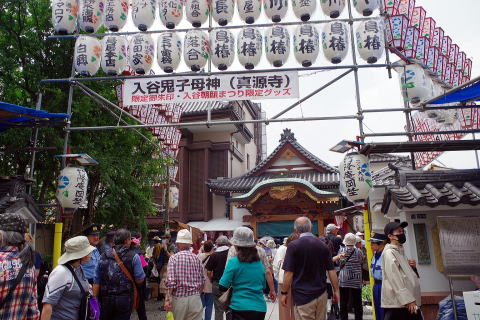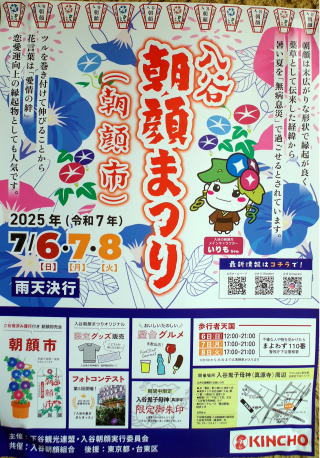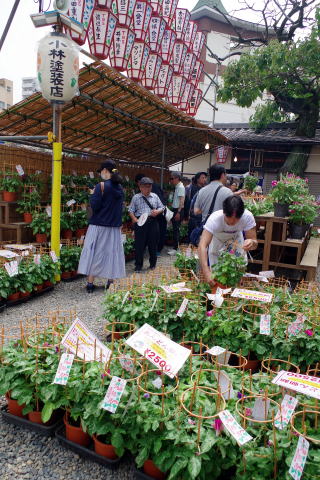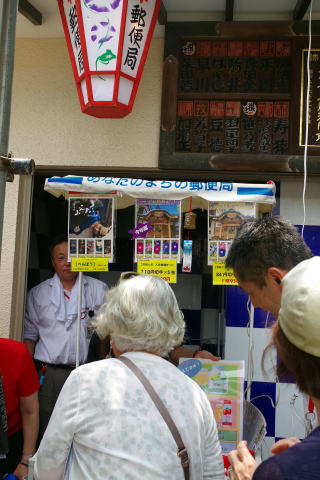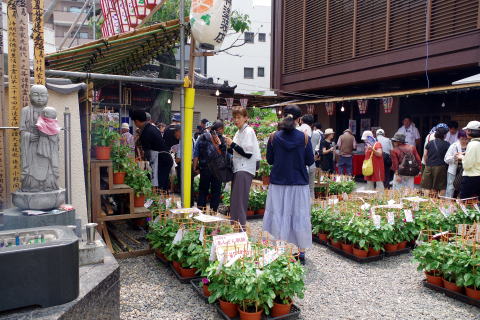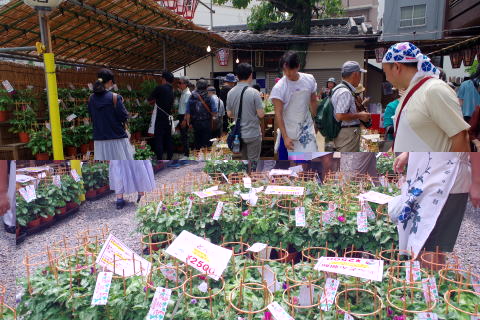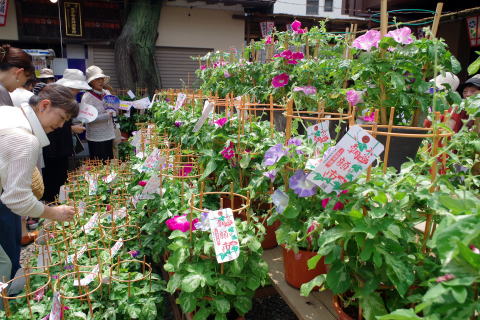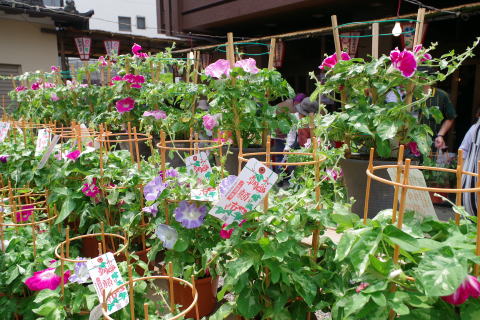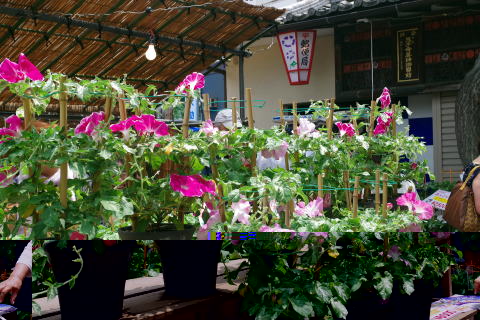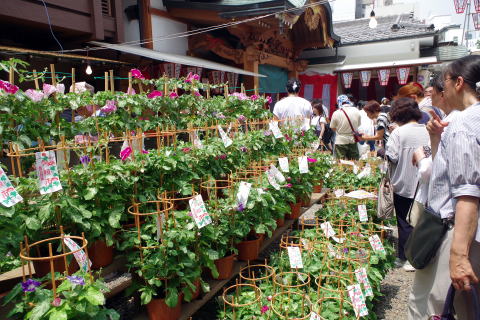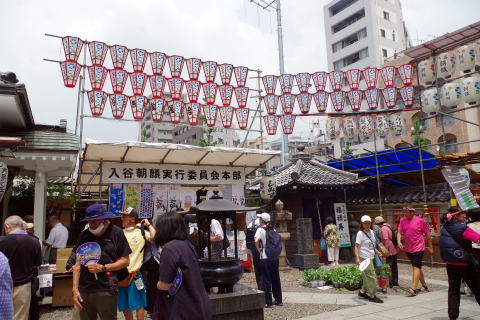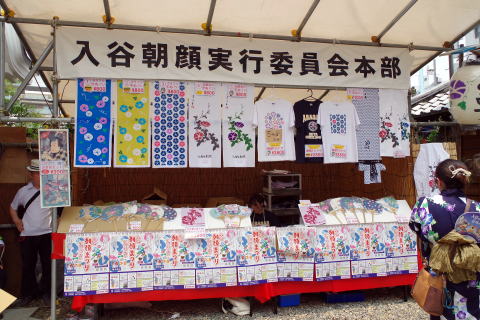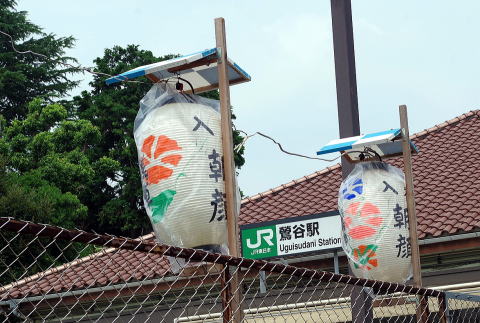

「朝顔市」入谷鬼子母神(真源寺)
朝顔は末広がりな形状で縁起が良く薬草として伝来した経緯から、暑い夏を「無病息災」で過ごせるとされています。
また、ツルを巻き付けて伸びることから花言葉は「愛情の絆」恋愛運向上の縁起物としても人気です。
入谷鬼子母神(真源寺)
真源寺は、万治2年(1659)に創建され、入谷鬼子母神(いりやきしきしもじん)の名称で有名です。釈迦は、性質凶暴で子供を食べる悪神鬼子母神の末子を隠し、子を失う悲しみを実感させ改心させました。以後、安産・子育ての守護神として信仰されています。入谷鬼子母神では、子育ての善神になった由来からツノのない「おに」の文字を使っています。
入谷朝顔まつり(朝顔市)
入谷鬼子母神|体験・観光スポット|台東区公式観光情報サイト
"Morning Glory
Market"
Morning
glories are auspicious because of their fan-shaped shape, and because they were
introduced to Japan as medicinal plants, they are said to bring good health and
prosperity during the hot summer.
In
addition, because the vines grow by wrapping around each other, the flower's
meaning is "bonds of love," and they are popular as lucky charms for
improving love luck.
Iriya
Kishibojin (Shingenji Temple)
Shingenji
Temple was founded in 1659 and is famous for its name Iriya Kishimojin. Buddha
hid the youngest child of the evil deity Kishibojin, who was violent by nature
and ate children, and made her realize the sadness of losing a child, leading
to her reform. Since then, she has been worshiped as the guardian deity of safe
childbirth and child-rearing. At Iriya Kishibojin, the character for
"oni" (demon) is used, without the horns, because she is a benevolent
deity of child-rearing.
